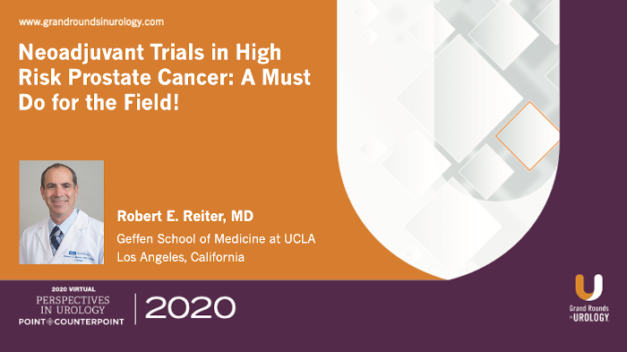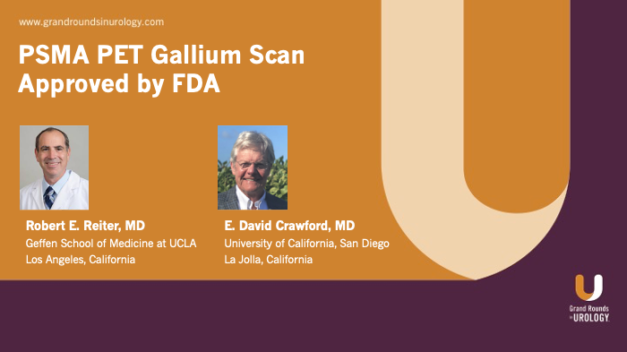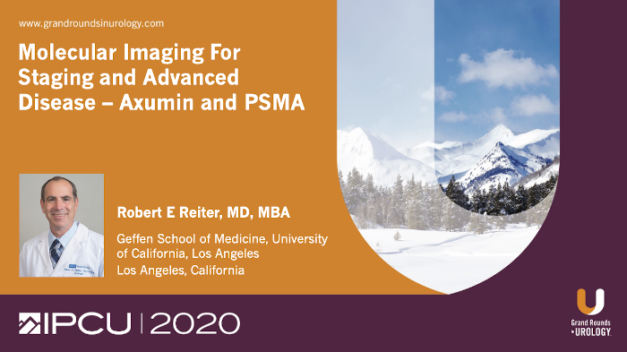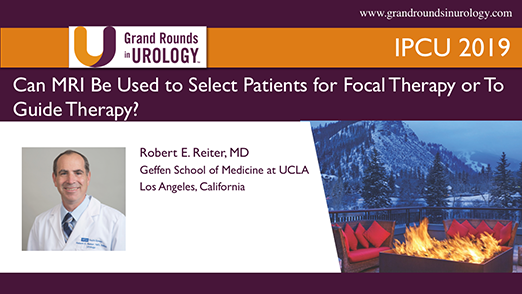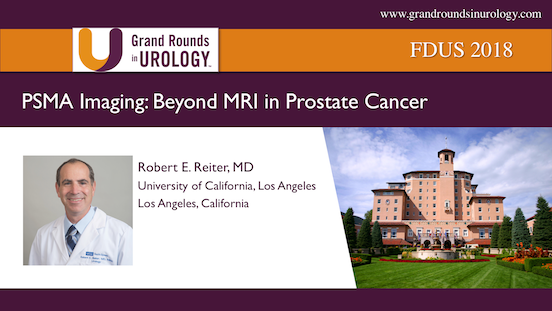Neoadjuvant Trials in High Risk Prostate Cancer: A Must Do for the Field
Robert E. Reiter, MD, MBA, Bing Professor of Urology and Molecular Biology and Director of the Prostate Cancer Treatment and Research Program at the David Geffen School of Medicine at the University of California, Los Angeles, and Principal Investigator of UCLA’s SPORE (Specialized Program in Research Excellence) program, argues for supporting neoadjuvant trials in high-risk prostate cancer as a key way to improve treatment results. He explains that ⅓ of high-risk patients die from their cancer, citing this as evidence that high-risk prostate cancer management must improve. Dr. Reiter then reviews several trials, beginning with CaLGB 90203, a neoadjuvant chemohormonal therapy study which found that over the course of ten years neoadjuvant patients experienced an 80% survival probability, while patients who were treated with only surgery experienced a 74% survival probability. He analyzes an assortment of phase II trials exploring whether more intensive androgen ablation can improve the short-term results of, for example, pathologic complete responses. These trials found that the complete response rates increased from 4% to 14% over the course of 12 weeks with no biochemical recurrences. Dr. Reiter continues by drawing attention to the current phase 3 PROTEUS trial, which should clarify whether or not pathologic complete response is a valid endpoint. He concludes with a discussion of the beneficial findings of pure translational neoadjuvant studies.
Read More
